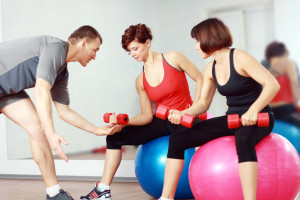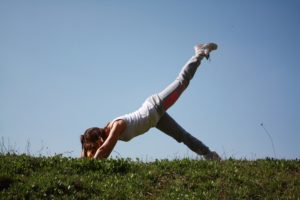- Calls to this hotline are currently being directed to Within Health, Fay or Eating Disorder Solutions
- Representatives are standing by 24/7 to help answer your questions
- All calls are confidential and HIPAA compliant
- There is no obligation or cost to call
- Eating Disorder Hope does not receive any commissions or fees dependent upon which provider you select
- Additional treatment providers are located on our directory or samhsa.gov
Athletes & Anorexia: Why Being Lean Has Become An Obsession

Many sports are judged on the body-type, weight, and performance of an athlete. Aesthetic sports may be more susceptible to eating disorders and when comparing self to others, behaviors can increase rigid eating, engagement in over-exercise programs, and over-commit to their sport which can lead to a diagnosable eating disorder.
Stress and Pressure
Anorexia is an eating disorder that is characterized by severe restriction of food, a fear of gaining weight or becoming fat, disturbance in body image perception, and a loss of body weight in a short period of time [1]. Amenorrhea can also occur in some female individuals due to low weight and malnutrition.
For many athletes, being ‘lean’ for their sport is considered acceptable due to low body weight being perceived as a biomechanical advantage in the performance sport [1]. Stressors such as the transition to university life, academic pressures, and sports performance can increase the start of an eating disorder to manage the pressures of school and sport.
Often at the high school and college level, there are similar factors. Students may have pressures to obtain scholarships to university for their sport or may have to maintain a specific GPA to stay in their sport of choice. Pressures from home, family, or a personal identity with the sport can add to pressures on the athlete.
The athlete-coach relationship can also play a role in the development of an eating disorder. Many sports focus on weight as a performance factor and may contribute to the ‘thin-ideal’ where athletes feel pressure to look and be as lean as they can to perform better for the team or to be the best in their division.
Messages
Typically society sends the message that to be an athlete means to be at a person’s peak performance and best physical form at all times.
This can increase the thin ideal pressures which can result in pressure to focus on weight, restrictive dieting, and disordered thinking.
Inadvertently, these pressures can also come from coaches, trainers, teammates, family, and peers around healthy dieting.
 At the university level factors such as increased stress, anxiety, and academic pressures have been correlated with poor body image and disordered eating behaviors [2]. Those with anorexia typically have characteristics of perfectionism, control, and mood disorders. In past studies, female athletes tend to have a higher risk of eating disorders compared to students who do not participate in sports [2].
At the university level factors such as increased stress, anxiety, and academic pressures have been correlated with poor body image and disordered eating behaviors [2]. Those with anorexia typically have characteristics of perfectionism, control, and mood disorders. In past studies, female athletes tend to have a higher risk of eating disorders compared to students who do not participate in sports [2].
These pressures can increase pathological disordered thinking and continued disordered eating. Increased body dissatisfaction and body image are also common among athletes, especially when comparing self to other athletes who are ‘thinner’ or perform better and are encouraged for having the ‘perfect’ sports body.
Unique Factors that Affect Athletes with Anorexia
Athletes that are prone to anorexia tend to show lower sports performance due to the eating disorder physical, emotional, and mental features. Often the misbelief among athletes is that a lower weight coupled with a restrictive calorie intake will aid in an increase in sports performance. Studies have shown, however, that anorexic behaviors can lower performance over time because of physical complications, such as glycogen depletion and dehydration [2].
With the development of anorexia, a person can also experience high levels of anxiety as the body becomes malnourished. Increased level of anxiety can also affect sports performance. Anxiety can increase the amount of negative thinking, self-doubt, and confidence an athlete has in their own athletic performance. Healthy self-confidence is a significant asset for an athlete to be able to believe in their sports ability, to utilize healthy coping skills when under stress, and for resilience.
The “Thin Ideal”
In a study that looked at body dissatisfaction and disordered eating symptoms in 320 athletes, from elite, recreational, and non-competitive female athletes between the ages of 17-30 whose sports were either lean or non-lean focused, found that those athletes in lean focused sports had higher levels of body dissatisfaction and higher levels of disordered eating symptoms regardless of the level of sport participation [3].

This study also found that elite athletes had the highest level of body dissatisfaction and eating disorder behaviors regardless of the sport. Also alarming was the fact that over 60% of coaches from these participants encouraged eating disorder pathology and the ‘thin ideal.’
Obsessions with being lean in the sport have been created over decades in the form of food and exercise behaviors, thinking patterns, social media, and the changing ideal for how men and women ‘should’ look with society. With the changing stereotypes of aesthetic sports leanness, athletes from a young age are inundated with media, advertisements, and encouragement to maintain low weight with the misbelief that it will increase sports performance.
Final Thoughts
Positive body image can be defined as an appreciation of one’s physical body, its functions, qualities, and is associated with higher self-esteem, positive affect, and healthier eating [4].
Being able to support athletes through healthy conversations around fueling for sport, positive body image, and proper nutrition can help establish and maintain healthy coping skills around body shape, size, and weight for their sport and performance.
 About the Author: Libby Lyons is a Licensed Clinical Social Worker and Certified Eating Disorder Specialist (CEDS). Libby has been practicing in the field of eating disorders, addictions, depression, anxiety and other comorbid issues in various agencies. Libby has previously worked as a contractor for the United States Air Force Domestic Violence Program, Saint Louis University Student Health and Counseling, Saint Louis Behavioral Medicine Institute Eating Disorders Program, and has been in Private Practice.
About the Author: Libby Lyons is a Licensed Clinical Social Worker and Certified Eating Disorder Specialist (CEDS). Libby has been practicing in the field of eating disorders, addictions, depression, anxiety and other comorbid issues in various agencies. Libby has previously worked as a contractor for the United States Air Force Domestic Violence Program, Saint Louis University Student Health and Counseling, Saint Louis Behavioral Medicine Institute Eating Disorders Program, and has been in Private Practice.
Libby currently works as a counselor at Fontbonne University and is a Adjunct Professor at Saint Louis University, and is a contributing author for Addiction Hope and Eating Disorder Hope. Libby lives in the St. Louis area with her husband and two daughters. She enjoys spending time with her family, running, and watching movies.
References:
[1] R. (2017, November 15). Mind, Body and Sport: Eating disorders. Retrieved December 05, 2017, from http://www.ncaa.org/sport-science-institute/mind-body-and-sport-eating-disorders[2] Academy, U. S. (2015, April 16). The Impact of Eating Disorder Risk on Sports Anxiety and Sports Confidence in Division III Female Athletes. Retrieved December 05, 2017, from http://thesportjournal.org/article/the-impact-of-eating-disorder-risk-on-sports-anxiety-and-sports-confidence-in-division-iii-female-athletes/
[3] The Sporting Body: Body Image and Eating Disorder Symptomatology Among Female Athletes from Leanness Focused and Non-leanness Focused Sports. (n.d.). Retrieved December 07, 2017, from http://www.tandfonline.com/doi/abs/10.1080/00223980.2013.846291
[4] VOELKER, D., & Petrie, T. (2016). BODIES IN MOTION: AN EVALUATION OF A PROGRAM TO SUPPORT POSITIVE BODY IMAGE IN FEMALE COLLEGIATE ATHLETES . Retrieved December 7, 2017, from http://www.ncaa.org/sites/default/files/2017RES_NCAAGrant-FinalReportExtension-VoelkerPetrie-FINAL_20171106.pdf
The opinions and views of our guest contributors are shared to provide a broad perspective of eating disorders. These are not necessarily the views of Eating Disorder Hope, but an effort to offer discussion of various issues by different concerned individuals.
We at Eating Disorder Hope understand that eating disorders result from a combination of environmental and genetic factors. If you or a loved one are suffering from an eating disorder, please know that there is hope for you, and seek immediate professional help.
Published on January 25, 2018.
Published on EatingDisorderHope.com

The EatingDisorderHope.com editorial team comprises experienced writers, editors, and medical reviewers specializing in eating disorders, treatment, and mental and behavioral health.

